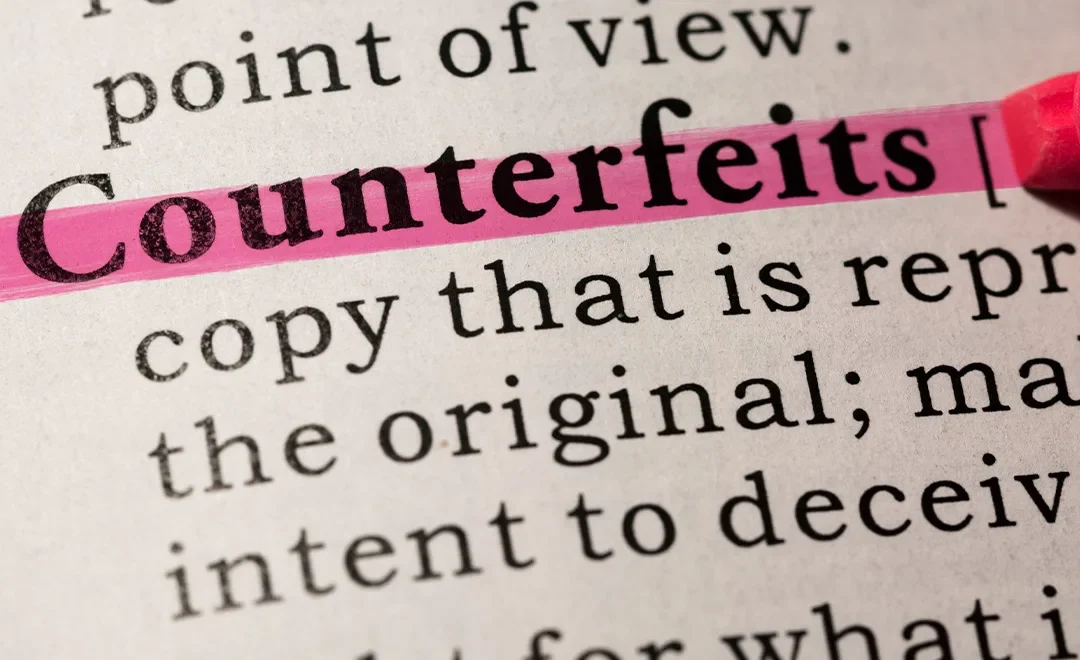 A new threat assessment drawn up in partnership between Europol and the European Union Intellectual Property Office (EUIPO) confirms links between counterfeiting and organised crime in the EU.
A new threat assessment drawn up in partnership between Europol and the European Union Intellectual Property Office (EUIPO) confirms links between counterfeiting and organised crime in the EU.
According to the first EU-wide intellectual property crime threat assessment from Europol and the European Union Intellectual Property Office, most criminal activity involving counterfeiting is carried out by increasingly professionalised organised crime networks, which can reap large profits while running relatively few risks.
The report also underlines that, although the majority of counterfeits in the EU market are produced outside Europe, in particular in parts of Asia, domestic manufacturing within Europe is an increasing trend.
The threat assessment, carried out using EU-wide data and strategic intelligence analysis, also stresses that, as well as the traditional categories of counterfeited clothes, footwear and luxury products, there is a growing trade in fake products which have the potential to damage human health. An example of this would be the trade in counterfeit medicines for the treatment of serious illnesses, which appears to be increasing.
In addition, fake goods are increasingly shipped via small parcels and express couriers, which are more difficult for enforcement authorities to detect.
Online, illegal digital content continues to be distributed through BitTorrent portals and peer-to-peer networks, but also, increasingly, via cyberlockers, the threat assessment finds. The owners of these platforms generate profit through digital advertisements, which often include mainstream adverts from major brands. In many cases, these websites are also used to target consumers using phishing techniques or the dissemination of malware.
The report was drafted by a team of analysts and specialists from Europol and the EUIPO. It draws on contributions received by Europol from Member States, EU Agencies and third parties, for the purpose of strategic intelligence analysis. In addition, it uses the operational data covering IP crime available at Europol, in particular the IPC3 (Intellectual Property Crime Coordinated Coalition). This includes data on large operations coordinated or supported by Europol. It also relies on the statistical data collected by the Directorate-General for Taxation and Customs Union (DG TAXUD) on seizures of counterfeit items by EU customs authorities in 2017. Furthermore, it takes the strategic and thematic reports produced or received by Europol or the EUIPO since the 2017 situation report into account. Finally, where appropriate (and verified), open source information has been used to complement the primary data.
The Executive Director of the EUIPO, Christian Archambeau, said: “This threat assessment paints a stark picture of the scope and range of counterfeiting and piracy in the EU, and the damage it can cause to legitimate business and to consumers. Through our collaboration with Europol, we aim to support the efforts of law enforcement authorities in their fight against IP Crime, particularly in the online environment.”
Europol’s Executive Director, Catherine De Bolle, said: “This report clearly shows that counterfeiting and piracy are not victimless crimes. Organised crime groups who produce and sell these goods have no respect for the quality of products which very often pose health and safety risks. Europol is dedicated to continuing its efforts, together with EU Member States and partners, to stop the criminal networks behind this dangerous and illegal trade. The health and safety of European consumers is of the utmost importance to us!”
The threat assessment will be released at the IP Enforcement Forum (co-organised by the OECD, the European Commission and the EUIPO) which aims to facilitate a coherent strategy to support effective IPR enforcement at EU and international level.
This high-level forum will also study ways to reinforce cooperation in the fight against counterfeiting and piracy at all levels, including bridging governance gaps.
The EUIPO will also release the new IP Enforcement Portal (a single EU platform for the enforcement of intellectual property rights) at the event, to support the IP enforcement community. This new powerful tool aims to facilitate the communication between rights holders and enforcement authorities, providing a central access point for most of the searchable databases for IP-related material, including TMview and DesignView. The portal combines the Enforcement Database (EDB), the Anti-Counterfeiting Intelligence Support Tool (ACIST) and the Anti-Counterfeiting Rapid Intelligence System (ACRIS) in a single platform.
Recently The Recycler reported on a study by Harris Interactive commissioned by HP showed that the global economy is losing around $3 billion (€2.6 billion) every year to counterfeit products sold.
To read the full report, click here.




















